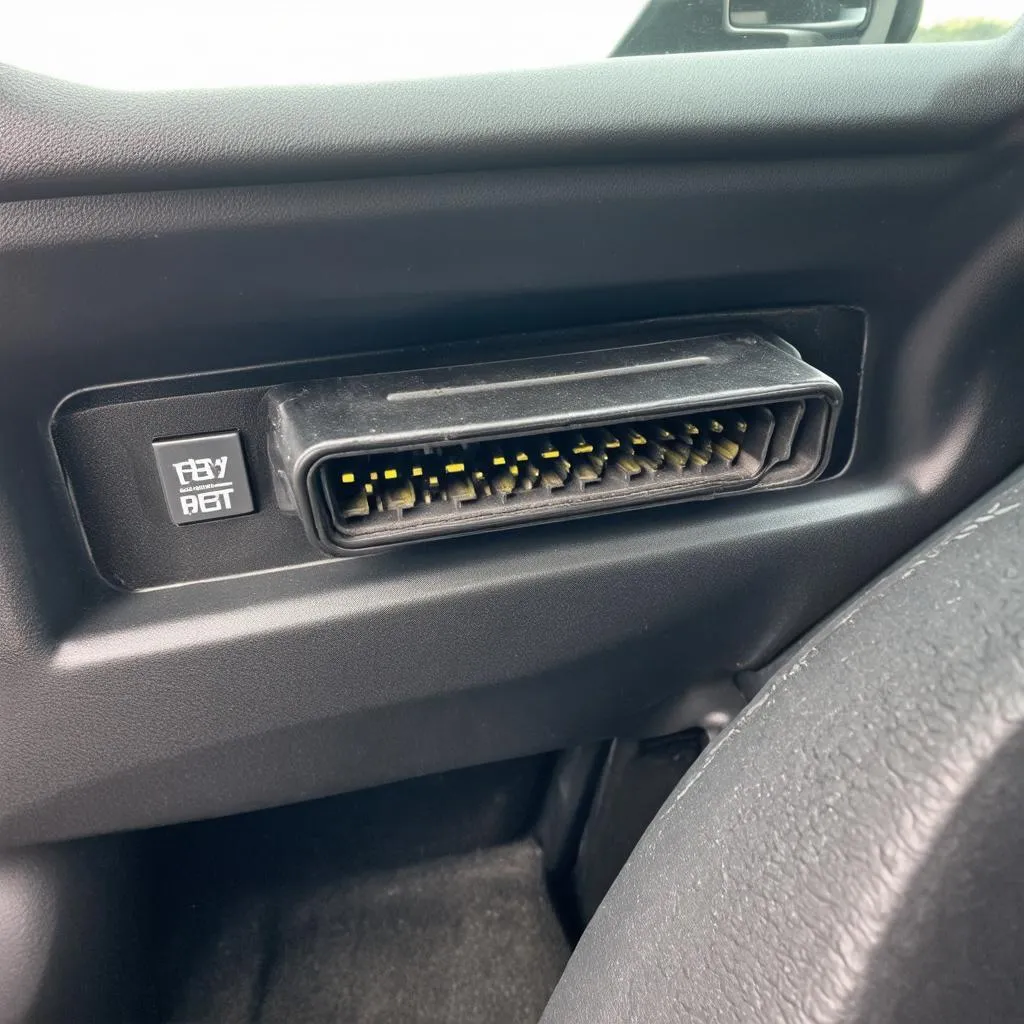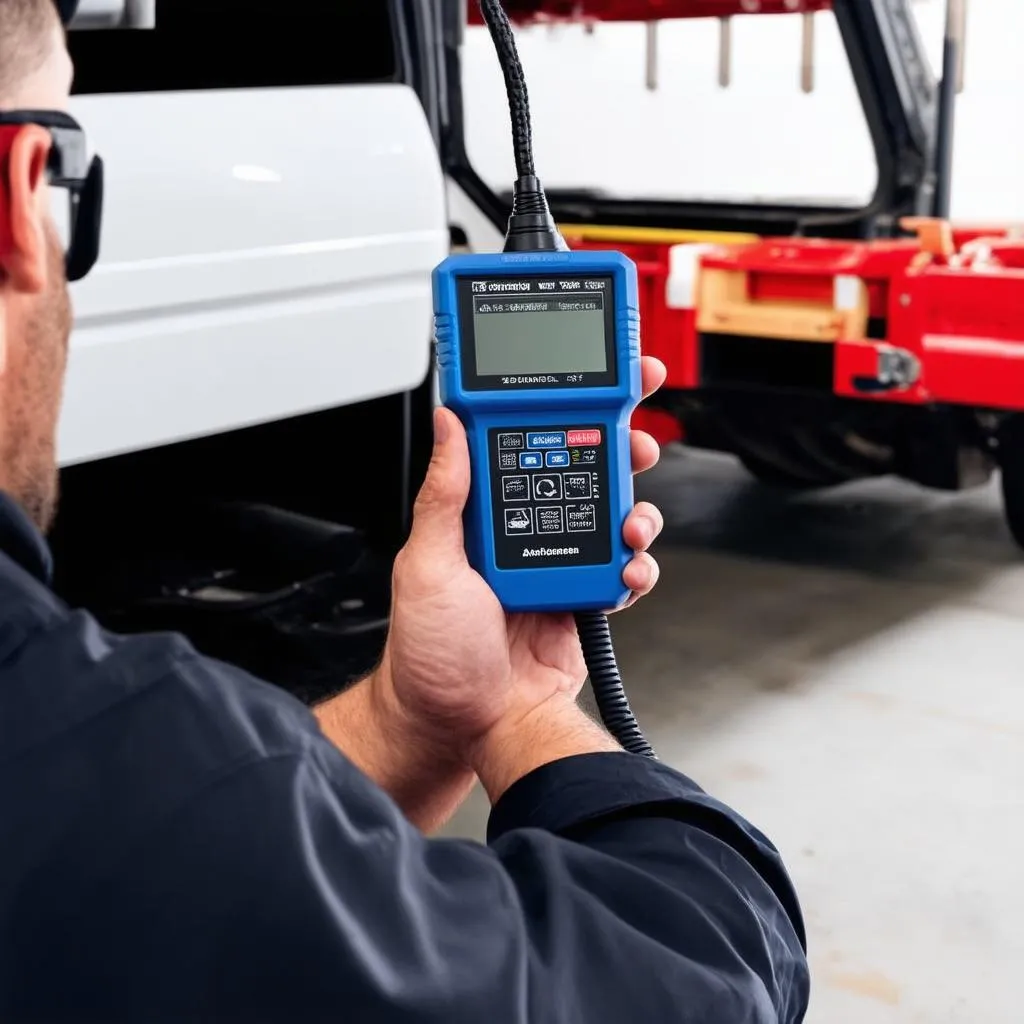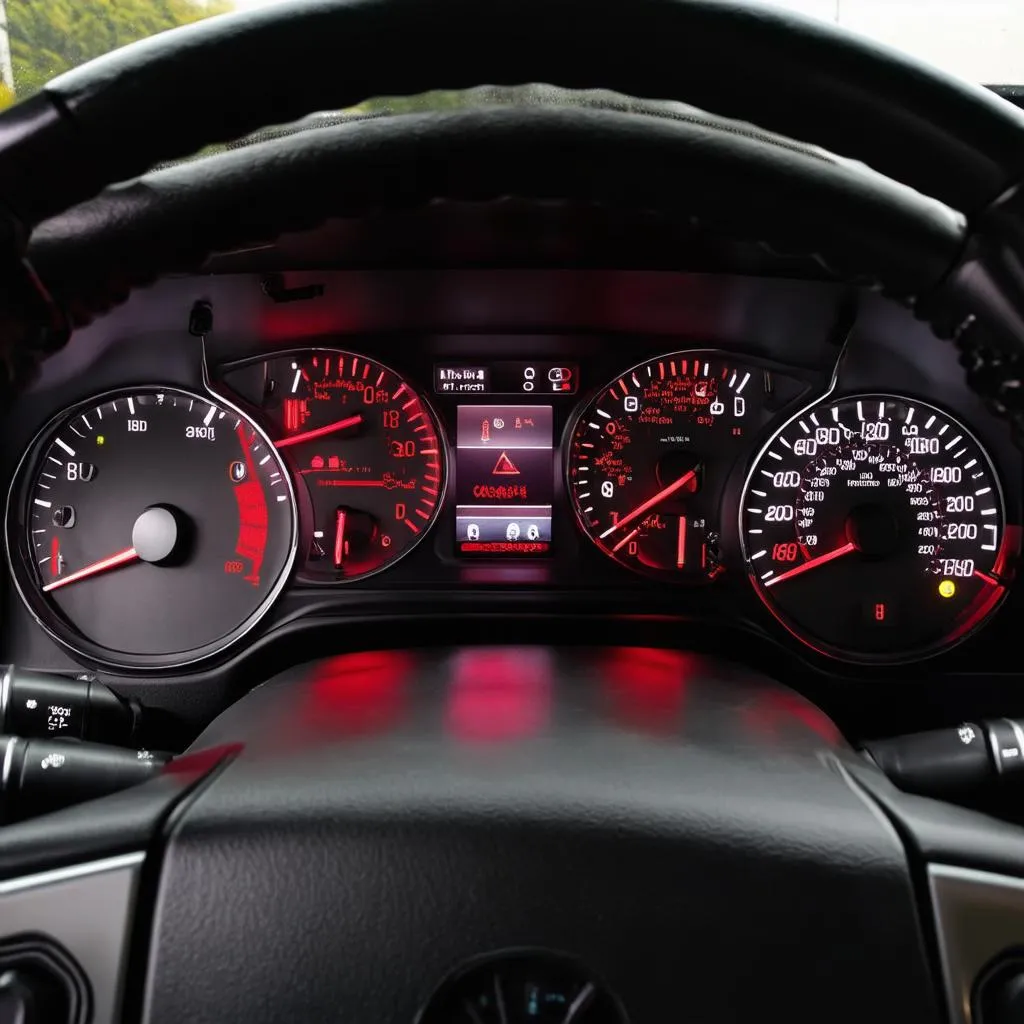“If your truck could talk, what would it say?” You might be surprised to learn it’s already speaking volumes – through its OBD port. This little portal under your dash isn’t just some random connector; it’s a direct line to your truck’s brain, revealing its health, performance, and even its secrets. Whether you’re a gearhead or just starting to tinker under the hood, understanding your truck’s OBD port can be incredibly empowering.
What Exactly is a Truck Obd Port & Why Should You Care?
Imagine being able to diagnose engine trouble before that dreaded “check engine” light even flickers on, or fine-tuning your truck’s performance for better fuel economy. That’s the power of the OBD (On-Board Diagnostics) port.
In simpler terms, it’s a standardized system in most vehicles since the mid-1990s that allows external devices to communicate with your truck’s computer. These devices, often called OBD scanners, can read diagnostic trouble codes (DTCs), monitor real-time data like engine speed and coolant temperature, and even reset certain warning lights.
But why is this knowledge beneficial? Consider this scenario:
You’re on a cross-country road trip, miles from the nearest mechanic, when your truck suddenly starts sputtering. Panic sets in, but wait! You remember reading about the OBD port and how it can help. You pull out your trusty OBD scanner, connect it to the port, and within minutes, you have a potential diagnosis. Armed with this knowledge, you can make an informed decision – drive to the nearest town or call for a tow, potentially saving yourself time, money, and a whole lot of stress.
 Truck Obd Port Location" width="1024" height="1024">Truck OBD Port Location
Truck Obd Port Location" width="1024" height="1024">Truck OBD Port Location
Deciphering the Mysteries: Common Questions About Truck Obd Ports
1. Where is the OBD Port in My Truck?
The OBD port is typically located under the dashboard on the driver’s side, often somewhere between the steering wheel and the center console. However, the exact location can vary slightly depending on the make, model, and year of your truck.
Pro Tip: If you’re having trouble locating the port, consult your owner’s manual or a reliable online resource specific to your vehicle. For instance, if you drive a 2001 Chevy Silverado and are struggling to find the OBD port, a quick search for “1999 Chevy Silverado OBD port not working” might lead you to a helpful resource like this.
2. Can I Use Any OBD Scanner on My Truck?
While most OBD scanners use a standardized connector, not all scanners are created equal. Some basic scanners might only read and clear engine codes, while more advanced models offer a wider range of functions, such as reading live data, performing emissions tests, or even programming keys.
Expert Insight: “It’s crucial to choose an OBD scanner that’s compatible with your truck’s make and model,” says automotive expert, Dr. Emily Carter, author of “The Complete Guide to Automotive Diagnostics.” “Using an incompatible scanner could lead to inaccurate readings or even damage your truck’s electrical system.”
3. Is There a Spiritual Connection?
While the OBD port itself is purely mechanical, some truck owners believe that a well-maintained vehicle reflects a sense of order and control in their lives. This philosophy aligns with the principles of Feng Shui, which emphasizes harmony and balance in one’s surroundings. Just as a cluttered home can lead to a cluttered mind, a neglected vehicle might symbolize a lack of attention to detail or a disregard for personal well-being.
 Mechanic Using OBD Scanner
Mechanic Using OBD Scanner
Taking Control: How Your Truck’s OBD Port Empowers You
Understanding and utilizing your truck’s OBD port can be incredibly beneficial in various situations:
- Early Problem Detection: By regularly scanning for codes, you can identify potential issues before they escalate into major (and expensive) repairs.
- Improved Fuel Efficiency: Monitoring parameters like oxygen sensor readings and fuel trim can help you identify areas for improvement and maximize your truck’s fuel economy.
- Enhanced Performance: Some OBD scanners allow you to adjust certain parameters, potentially enhancing your truck’s horsepower, torque, and overall performance.
- Informed Decision Making: When faced with a “check engine” light or other warning indicators, having access to the underlying codes empowers you to make informed decisions about repairs, avoiding unnecessary trips to the mechanic.
Expanding Your Knowledge: Related Questions and Resources
- Do Isuzu NPRs have OBD ports? Find out here.
- Where is the OBD port located on a 2001 Freightliner food truck? Discover the answer.
- What are the common issues with a Cummins OBD system? Learn more.
Interested in learning more about specific truck models and their OBD systems? Check out our articles on the 2001 Chevy Truck OBD Port for in-depth insights.
Need Help Navigating the World of OBD?
We’re here to help! If you need assistance with setting up your OBD scanner, understanding diagnostic codes, or simply want to learn more about your truck’s inner workings, don’t hesitate to reach out. Contact our team of automotive experts via Whatsapp at +84767531508 for 24/7 support. We’re passionate about empowering truck owners with the knowledge they need to keep their vehicles running smoothly.
 Truck Dashboard with Warning Lights
Truck Dashboard with Warning Lights
Your truck’s OBD port is a powerful tool waiting to be utilized. Embrace the technology, unlock the secrets within, and enjoy a more informed and empowered driving experience.